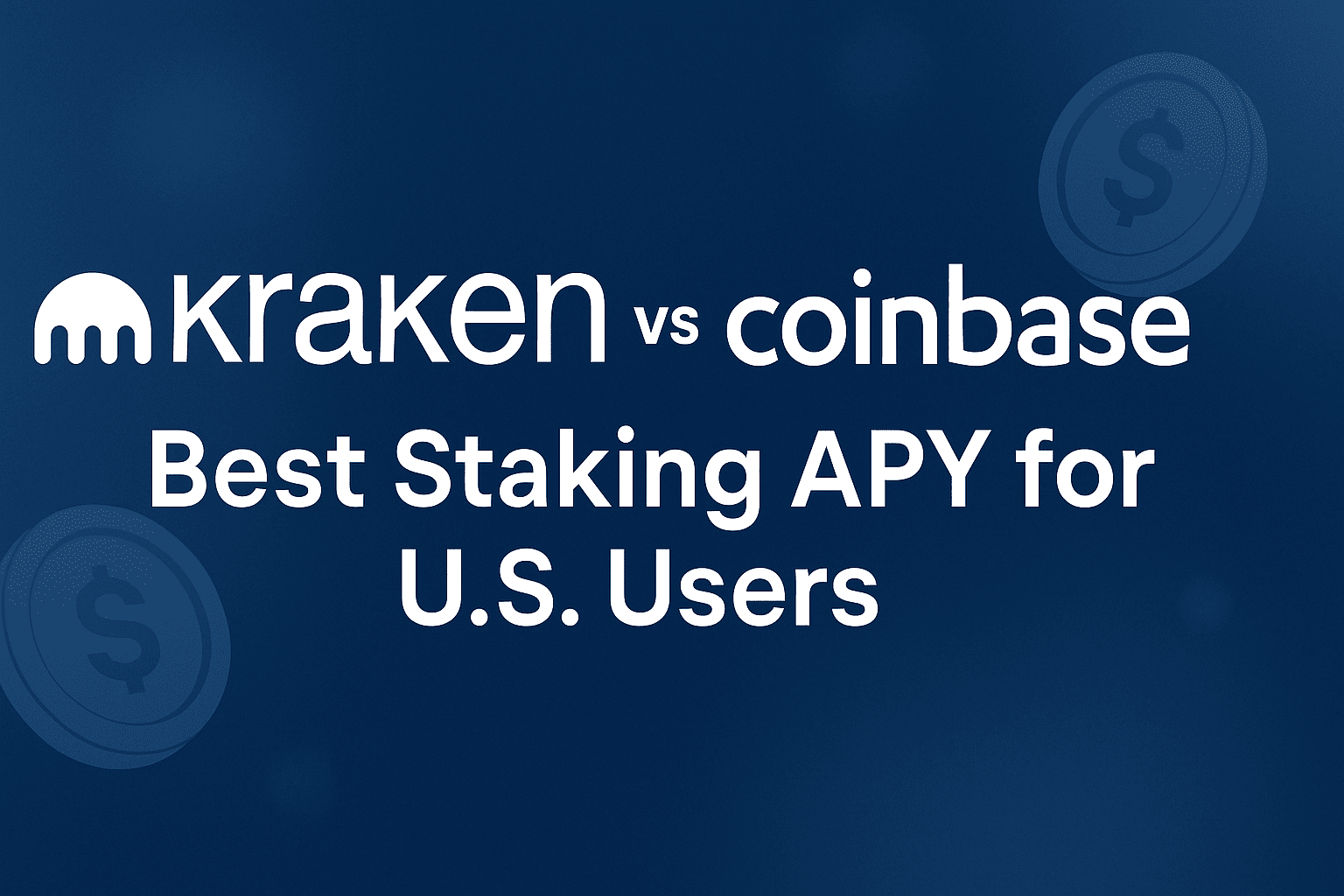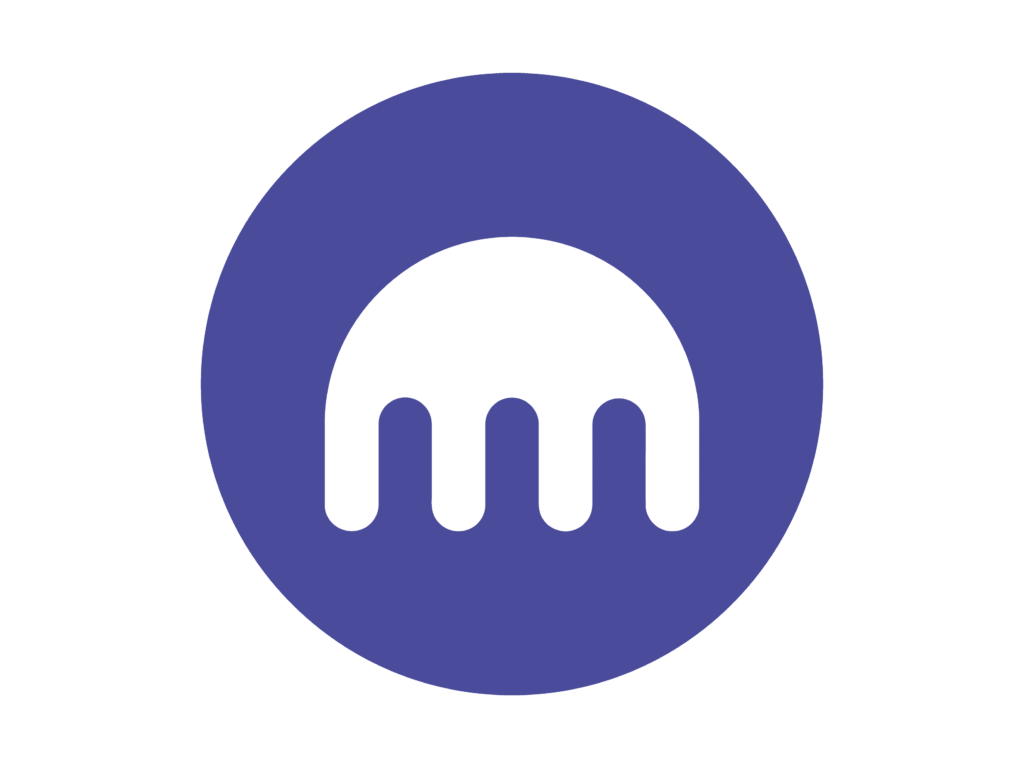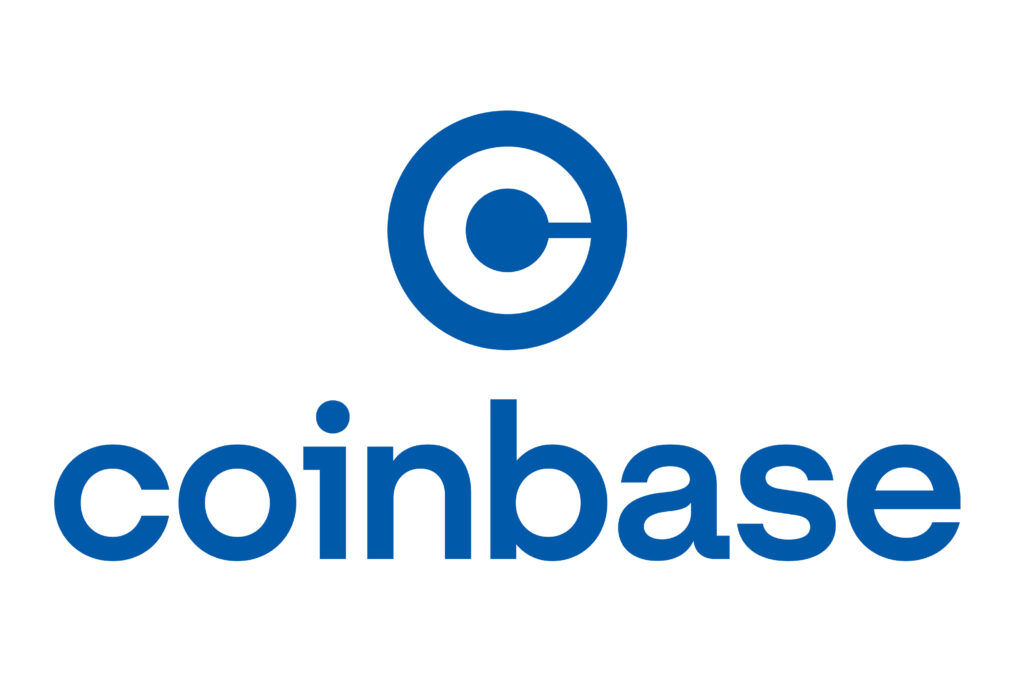Kraken vs Coinbase: Best Staking APY for U.S. Users 2025

Kraken vs Coinbase: Best Staking APY for U.S. Users
Introduction to Crypto Staking
In the world of crypto, holding coins is no longer the only way to grow your portfolio. These days, staking is all the rage—and for good reason. It’s kind of like earning interest from your savings account, but instead of leaving cash in a bank, you’re locking your crypto to help run blockchain networks. And in return, you earn rewards.
But here’s the catch: not every platform pays out the same. If you’re a U.S. user trying to decide between Kraken and Coinbase for staking, you’re probably wondering: Which one gives the better APY? That’s what we’re about to break down.
What Is Crypto Staking?
Imagine you own a bunch of crypto. Instead of letting it sit in your wallet doing nothing, you “stake” it—basically locking it up to support the network, like validating transactions or securing the blockchain. In return, you get rewarded with more crypto. It’s passive income for crypto holders.
Why U.S. Users Are Turning to Staking
With interest rates fluctuating and inflation doing its thing, a lot of American investors are turning to staking to make their crypto work harder. It’s more accessible than mining and less risky (in some cases) than trading. And hey, who doesn’t want to earn a few extra bucks just for holding?
Overview of Kraken and Coinbase
What Is Kraken?

Launched in 2011, Kraken is one of the oldest and most trusted crypto exchanges in the world. It’s known for being secure, reliable, and a bit more “pro trader”-oriented. But don’t let that scare you—staking on Kraken is actually super user-friendly.
Official Website – Kraken
What Is Coinbase?

Coinbase, on the other hand, is practically a household name in the U.S. Founded in 2012, it’s one of the easiest platforms to use, and that’s why it’s usually the first stop for new crypto users. It also offers staking directly from the app, making it ridiculously simple to get started.
Official Website – Coinbase
User Base and Market Reputation
While Kraken leans a bit more toward serious traders and institutions, Coinbase is all about ease of use and accessibility. Both are regulated in the U.S. and widely trusted.
How Staking Works on Kraken

Supported Assets for Staking
Kraken offers staking for:
- Ethereum (ETH)
- Polkadot (DOT)
- Cardano (ADA)
- Solana (SOL)
- Cosmos (ATOM)
- And more
Kraken Staking Process
It’s pretty straightforward. You buy a supported crypto asset, go to the “Earn” section, and start staking with one click. That’s it. No complex setup or third-party wallets.
Kraken’s Average APYs
Here’s what you can expect in June 2025:
- DOT: ~10-12%
- ADA: ~4-6%
- ETH: ~3-4%
- SOL: ~6-7%
(Keep in mind APYs change based on network performance.)
How Staking Works on Coinbase
Assets Available for Staking
Coinbase also supports popular coins like:
- Ethereum (ETH)
- Solana (SOL)
- Tezos (XTZ)
- Cardano (ADA)
- Cosmos (ATOM)
Coinbase Staking Experience
Staking here is effortless. After buying a staking-enabled coin, Coinbase often auto-enrolls you—or you can toggle it on in the app. You’ll start earning rewards typically within a few days.
Coinbase’s Average APYs
Here’s what U.S. users are currently earning:
- ETH: ~3.0%
- SOL: ~5.5%
- ADA: ~3.5%
- ATOM: ~4.0%
Not bad, but you’ll see in a second how it stacks up against Kraken.
Comparing Staking Rewards (APY)
Top Coins and Their Returns
Let’s put Kraken and Coinbase head-to-head:
| Coin | Kraken APY | Coinbase APY |
|---|---|---|
| ETH | 3.5% | 3.0% |
| DOT | 11% | Not available |
| ADA | 5.5% | 3.5% |
| SOL | 6.5% | 5.5% |
| ATOM | 7% | 4% |
Consistency and Payout Frequency
Kraken typically pays twice per week, while Coinbase distributes once per week. Kraken also offers unstaking flexibility, while Coinbase may enforce longer unbonding periods, especially for ETH.
Staking Fees and Hidden Costs
Kraken’s Fee Structure
Kraken doesn’t charge a fixed staking fee, but it keeps a portion of the reward. The platform is transparent about it, though, and the final APY shown is what you’ll get.
Coinbase’s Fee Structure
Coinbase charges a hefty 25% commission on staking rewards. Yep, you read that right. That’s one reason its APYs are lower compared to Kraken’s.
Real APY After Fees
This is where it really hits home: Kraken may offer slightly lower gross rewards on paper for some assets, but after fees, it often beats Coinbase.
👉 5 Crypto Trading Apps Everyone on TikTok Is Using in 2025
User Interface and Experience
Mobile and Desktop Experience
Both platforms offer smooth mobile apps and responsive websites. Coinbase is sleeker for beginners, while Kraken gives more advanced options for those who want them.
Ease of Use for Beginners
If you’ve never staked crypto before, Coinbase will feel more like using a mobile banking app. Kraken takes an extra click or two, but it’s not rocket science.
Security Measures
How Safe Is Kraken?
Kraken has never been hacked. It’s known for military-grade security, cold storage, and real-time audits.
How Safe Is Coinbase?
Coinbase is FDIC-insured for cash balances, publicly traded, and regularly audited. It’s also never had a major breach.
Insurance and Compliance
Both exchanges comply with U.S. regulations. But with the SEC cracking down on staking, Kraken had to shut down some staking options in the U.S. in 2023, while Coinbase continues to fight back legally.
Regulation and Availability in the U.S.
Some staking services might not be available in New York or Hawaii due to state regulations. Always double-check before you sign up.
Customer Support & Community Feedback
Kraken Support Reviews
Kraken’s support is decent, with live chat available—but wait times can be a little annoying during market surges.
Coinbase Support Reviews
Coinbase has improved support over the years but still gets mixed reviews. You’ll likely deal with automated responses first.
Kraken Pros and Cons for Staking
Pros:
- Higher APYs
- Frequent payouts
- Transparent fees
Cons:
- Slightly more complex UI
- Some services not available in all U.S. states
Coinbase Pros and Cons for Staking
Pros:
- Super easy to use
- Auto-staking setup
- Strong mobile app
Cons:
- Lower APYs
- 25% reward commission
- Limited control over unbonding
Who Should Use Kraken vs Coinbase?
For High APY Seekers
If you’re after maximum returns, Kraken is your go-to. Especially for DOT, ATOM, and SOL.
For Newbies and Simplicity
If you want the easiest experience possible, Coinbase wins. It’s like staking with training wheels on.
Expert Opinion and User Insights
What Reddit and X (Twitter) Say
Reddit users generally praise Kraken for better payouts, while Coinbase fans rave about the interface. The crypto community agrees: Kraken = better returns, Coinbase = better UX.
Crypto Influencers’ Views
Influencers like @LarkDavis and @Guy from Coin Bureau often mention that staking on exchanges like Kraken is more rewarding, but remind users to consider self-custody for long-term holdings.
Final Verdict: Kraken or Coinbase?
If you’re in the U.S. and want the best staking APY, Kraken takes the crown. The platform offers better rewards, more staking options, and lower fees. But if you’re new to crypto and want a smooth experience without digging into charts and settings, Coinbase is a safe and easy pick.
Choose based on your priorities—higher yield or easier experience.
Conclusion
Crypto staking is an amazing way to grow your holdings without doing much. For U.S. users deciding between Kraken and Coinbase, it comes down to what you value more: more rewards (Kraken) or ease of use (Coinbase).
Either way, staking is a powerful tool in your crypto journey—just remember to research, understand the risks, and always keep security top of mind.
FAQs
1. Is staking safe on Coinbase and Kraken?
Yes, both platforms are secure and regulated in the U.S. But staking always carries some risk if networks fail or platforms change terms.
2. Which exchange pays staking rewards faster?
Kraken usually pays out twice a week, while Coinbase pays weekly.
3. Can U.S. users stake ETH on both platforms?
Yes, ETH staking is available on both, but unbonding times and APYs may differ.
4. Are staking rewards taxed in the U.S.?
Yes, rewards are treated as income and should be reported. Consult a tax pro to stay compliant.
5. Which one is better for beginners?
Coinbase is more beginner-friendly with its clean UI and automated staking setup.
Please don’t forget to leave a review.
